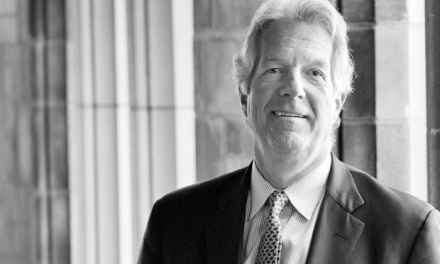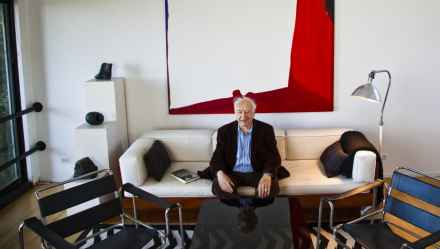MFA Alumnus Turns Circuitous Career Path into Engaging Fiction
John Kuhns, MFA'75, didn't begin his career with the endgame of becoming a novelist. However, as he was taking sculpture classes at the university, he couldn't picture himself as a professional artist, either. Kuhns, an investment banker specializing in hydroelectric energy and CEO of three companies, has taken his unlikely career path and used it as fodder for his first novel, China Fortunes: A Tale of Business in the New World, which details the highs and lows of the semiautobiographical character Jack Davis. As Kuhns explains, his varied career is less unique than it may seem: "I read recently that the average person has seven jobs in three different industries during their career. The idea that you would get out of school with a practical education and have a job for life is gone with the wind." Much like his recent turn towards writing though, Kuhns says you have to follow your heart when it comes to work: "Pursue a career in something that you're good at, and never make a career decision based on the money...if you do something you're good at, the money will come." Kuhns' second novel, South of the Clouds, is forthcoming.
To read more about Kuhns' varied professional pursuits, click here.

